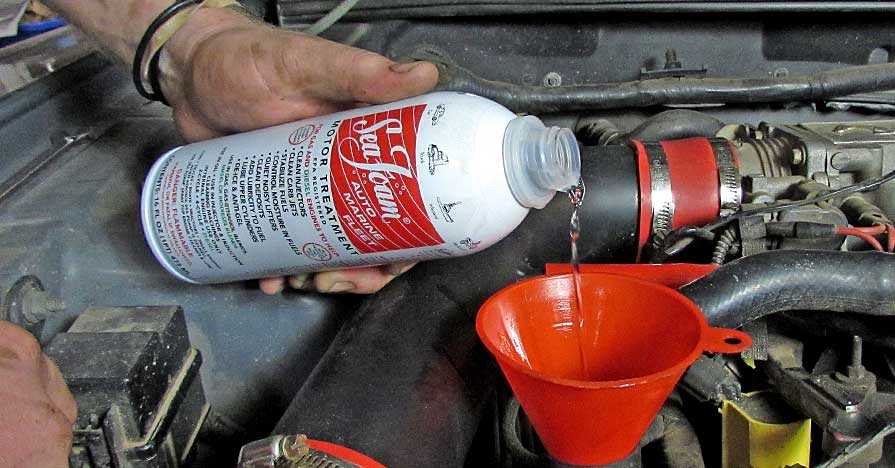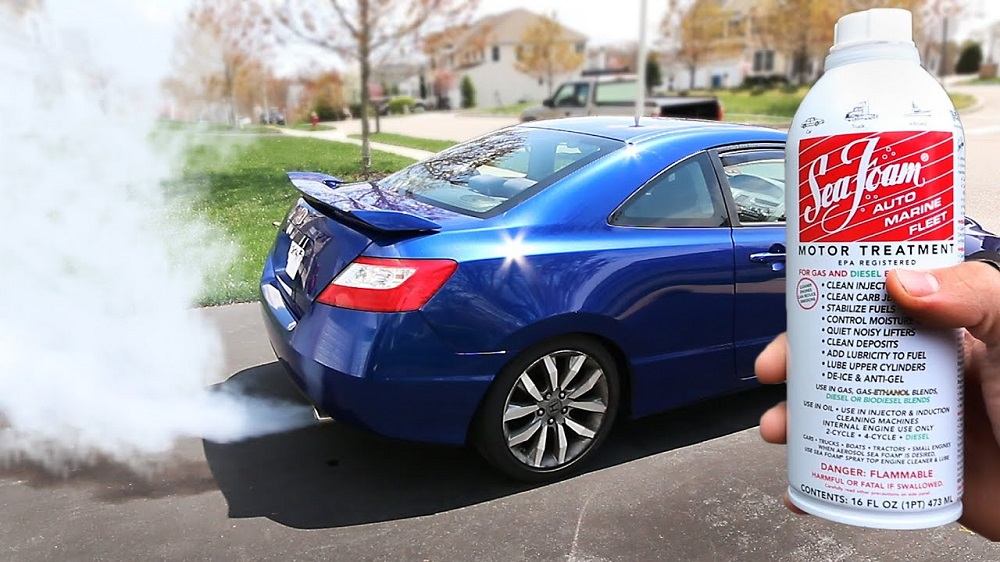Seafoam is a kind of fuel additive that improves the performance of a motor vehicle. The fuel and oil in a car get sludge buildup and contaminants over the years. Seafoam is supposed to remove the deposits and dirt from the fuel system to keep it clean. Does it actually do so? What is the truth about seafoam? Let’s discuss that.
Contents
The Truth about Seafoam: Functions and Benefits
Seafoam has claimed both popularity and notoriety over the years. It gets loads of positive reviews while it’s not hard to find negative remarks about it either.
Here are some straightforward truths about the product that will help clear your confusions (if you have any):
The Ingredients
Seafoam is a 100% blended petroleum product. It works as an additive but there are no harmful elements used in it. It has no astringents, emulsifiers, detergents, or fillers.

Adding seafoam to the fuel of the car increases the lubricity of the fuel system components. It also cleans dirt and sludges from these components. Along with the fuel system, fuel pumps, exhaust components, upper cylinders, and induction systems get benefited from the seafoam additive.
How Does It Work?
When you add fuel to the engine, it brings all kinds of sulfur, salt, and all kinds of VOC and NOx materials (which are ozone precursors). These ingredients help with the acquisition of sludge, gum, dirt, other things.
Seafoam breaks up and dissolves these contaminants. These junk elements then float back into the suspension to get burnt out or filtered out.
What Does It Do?
Seafoam actually benefits the engine components and increases the overall performance of the vehicle. Following are some of the advantages of this ingredient:
Adding seafoam to the engine oil helps with drying up fuel moisture, which can create various problems, including thickening diesel fuel. Seafoam breaks the moisture into its basic components, i.e., hydrogen and oxygen.
Carbon build-ups inside the engine not only decrease the car’s performance but also increase carbon emission. Seafoam cleans these buildups by removing the old sticky oil residue that contains carbon.
Any type of fuel loses its ability to burn down properly over time. A seafoam additive adds volatility to the fuel, which slows down this deterioration. It can stabilize the fuel properties for around two years.
SEE MORE
Does Seafoam Harm Engine Components?
Learning the truth about seafoam may make you wonder about its harmful effects. As it can dissolve carbon buildup and various dirt materials, you may wonder if it has any corrosive element. Well, it definitely has some cleaning properties, but it does not do any harm to the engine components.
In general, it does not do any physical damage or disfiguration to rubber, plastic, seals, O-rings, and other components found inside a motor vehicle.
Conclusion
If you are thinking of adding seafoam to improve the fuel quality and increase the vehicle’s performance, do that without any hesitation. In fact, it has various benefits without causing any damage.



